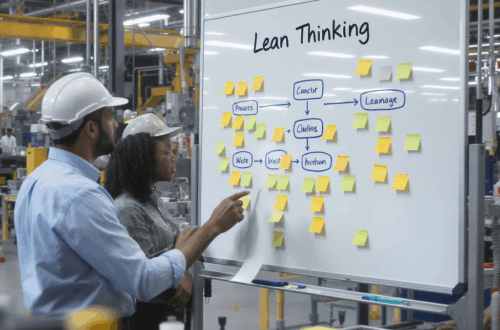 The COVID-19 pandemic has had a profound impact on organizations around the world, forcing them to adapt and innovate in order to survive. As a result, many have turned to the principles of lean to help them identify and eliminate waste, reduce variability, and improve efficiency.
The COVID-19 pandemic has had a profound impact on organizations around the world, forcing them to adapt and innovate in order to survive. As a result, many have turned to the principles of lean to help them identify and eliminate waste, reduce variability, and improve efficiency.
However, the pandemic has also highlighted the need to revise some of the core principles of lean in order to better address the challenges of the modern business environment. Here are three key ways in which the principles of lean should be revised based on what we have learned from the COVID-19 pandemic:
Emphasize flexibility and adaptability: One of the biggest challenges that organizations have faced during the pandemic is the need to quickly adapt to rapidly changing circumstances. This has highlighted the importance of flexibility and adaptability in lean processes, as well as the need to build in mechanisms for responding to unforeseen events.
Prioritize customer needs: The pandemic has also highlighted the importance of putting the needs of customers first, as organizations that were able to quickly adapt to changing customer preferences and behaviours were more likely to survive. As a result, lean processes should be designed with the customer in mind and should focus on delivering value to customers in a way that is efficient and effective.
Focus on collaboration and cross-functional teamwork: Finally, the pandemic has demonstrated the need for organizations to work together and share knowledge and resources in order to survive. This has highlighted the importance of collaboration and cross-functional teamwork in lean processes, as well as the need for organizations to foster a culture of continuous learning and improvement.
In conclusion, the COVID-19 pandemic has underscored the need for organizations to revise their approach to lean in order to better address the challenges of the modern business environment. By emphasizing flexibility, customer focus, and collaboration, organizations can use lean principles to drive business results and build resilience in uncertainty.

